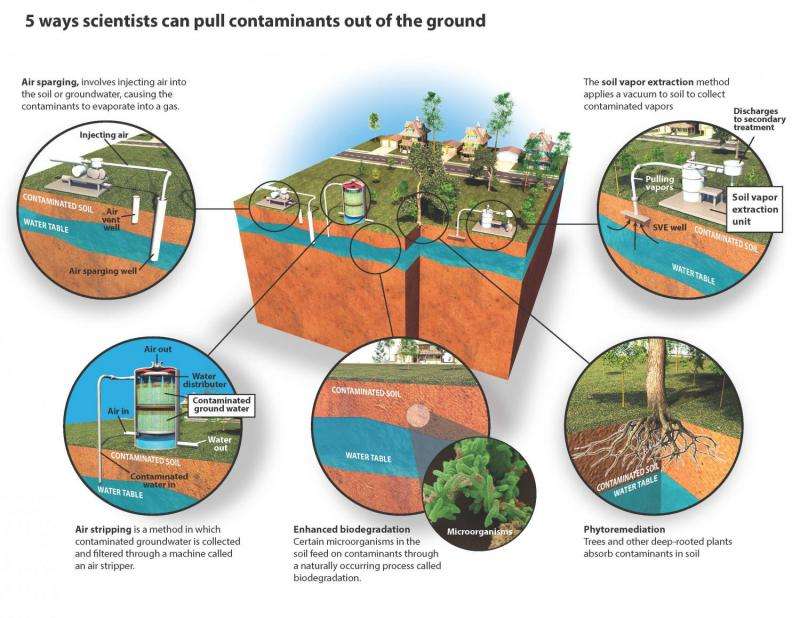The Innovations Of Civil Engineering In Soil Remediation Techniques

If you're concerned about soil contamination, there's good news: there are many new approaches to soil remediation that can help address the problem. These techniques range from bioremediation to phytoremediation, and they offer a variety of benefits in terms of effectiveness, efficiency, and cost.
At its most basic level, soil remediation involves removing contaminants from soil. There are many different ways to do this, and the best approach will depend on a variety of factors, including the type and severity of contamination, the soil type and characteristics, and the location and size of the contaminated area.
One of the most popular approaches to soil remediation is bioremediation. This technique involves using microorganisms to break down contaminants into less harmful substances. Bioremediation can be done in a variety of ways, including adding microorganisms to soil, sparging air or water through the soil to provide oxygen for microorganisms, and even using plants to stimulate microbial activity.
Another popular technique is phytoremediation. This approach involves using plants to remove contaminants from soil. Plants can do this in a variety of ways, including absorbing contaminants through their roots, breaking down contaminants through metabolic processes, and even removing contaminants from the soil through transpiration.
In addition to these established techniques, there are many new approaches to soil remediation that are currently being developed and tested. Some of these approaches include:
- Nanoremediation
- Electrokinetic treatment
- Chemical oxidation/reduction
- Thermal desorption
- Soil washing
Each of these techniques has its own unique advantages and disadvantages, and the best approach will depend on the specific circumstances of the soil contamination.
Frequently Asked Questions (FAQ)
What are the benefits of soil remediation?
Soil remediation can have many benefits, including:
- Reducing the risk of exposure to contaminants
- Improving soil health and fertility
- Preventing further contamination of surrounding areas
- Reducing the cost of environmental cleanup
How long does soil remediation take?
The time it takes to remediate soil depends on a variety of factors, including the type and severity of contamination, the soil type and characteristics, and the chosen remediation technique. Some techniques can take just a few months, while others can take years.
How much does soil remediation cost?
The cost of soil remediation can vary widely depending on the type and severity of contamination, the soil type and characteristics, and the chosen remediation technique. In general, however, soil remediation can be quite expensive due to the specialized equipment and expertise required.
Can soil remediation be done without harming the environment?
Yes, soil remediation can be done in an environmentally friendly way. For example, using bioremediation or phytoremediation techniques can be less harmful to the environment than traditional methods that rely on chemicals or other harsh substances.
How can I tell if my soil is contaminated?
You may be able to tell if your soil is contaminated by observing signs such as:
- Unusual odors
- Discoloration or staining
- Abnormal growth patterns in plants
- Persistent health problems in animals or humans
However, the only way to be sure if your soil is contaminated is to have it tested by a qualified professional.
What should I do if I find out my soil is contaminated?
If you discover that your soil is contaminated, it's important to take action as soon as possible. Contact a qualified environmental remediation professional for advice on how to proceed.
Soil remediation can be a complex and challenging process, but with the right techniques and expertise, it can be done effectively and efficiently. Whether you're dealing with a small or large contamination, there are many options available to help you restore your soil to a healthy and safe condition.
Remember, the key to successful remediation is to work with experienced professionals who can help you determine the best approach for your specific situation.


Post a Comment for "The Innovations Of Civil Engineering In Soil Remediation Techniques"